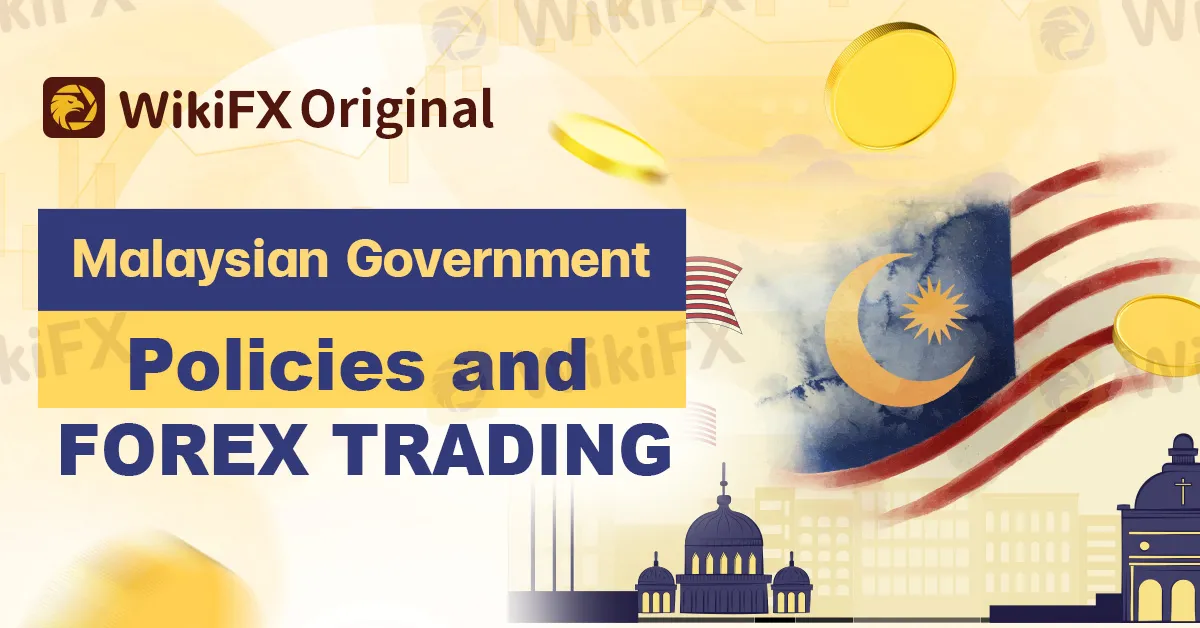简体中文
繁體中文
English
Pусский
日本語
ภาษาไทย
Tiếng Việt
Bahasa Indonesia
Español
हिन्दी
Filippiiniläinen
Français
Deutsch
Português
Türkçe
한국어
العربية
Malaysian Government Policies and Forex Trading
Abstract:The Malaysian government's carefully crafted policies play a crucial role in shaping the forex trading landscape in the country, fostering investor protection and market development. From stringent regulation of forex brokers to measures that encourage foreign investment, these policies have made Malaysia's forex market well-regulated and increasingly attractive to traders.

The Malaysian government has several policies that affect forex trading in the country. These policies are designed to protect investors and promote the development of the forex market in Malaysia.
One of the most essential government policies is the regulation of forex brokers. The Bank Negara Malaysia must license all forex brokers operating in Malaysia. This ensures that brokers meet certain standards of financial stability and customer protection.
The Malaysian government also imposes certain restrictions on forex trading. For example, there are limits on the amount of leverage forex traders can use. This is designed to protect traders from excessive risk.
In addition, the Malaysian government has several policies promoting the development of Malaysia's forex market. For example, the government provides tax breaks to forex brokers and investors. This helps to attract foreign investment to the Malaysian forex market.

The Malaysian government's policies have helped to make forex trading a popular activity in Malaysia. Several licensed forex brokers operate in the country, and the market is well-regulated. As a result, forex traders in Malaysia can be confident that they are operating in a safe and transparent environment.
Here are some of the specific government policies that affect forex trading in Malaysia:
The Foreign Exchange Administration Policy (FEAP): The FEAP sets out the rules and regulations governing forex trading in Malaysia. It covers topics such as the licensing of forex brokers, the use of leverage, and the reporting of transactions.
The Anti-Money Laundering and Counter-Terrorism Financing Act (AMLA): The AMLA requires forex brokers to take steps to prevent money laundering and terrorist financing. This includes verifying the identity of customers and reporting suspicious transactions.
The Consumer Protection Act (CPA) protects consumers from unfair and deceptive practices. This includes providing consumers with clear and accurate information about forex trading risks.
The Malaysian government's policies have positively impacted the forex market in Malaysia. The market is now well-regulated and transparent, which has attracted foreign investment and made it a more attractive destination for forex traders. As a result, the forex market in Malaysia is expected to continue to grow in the years to come.
If you are interested in forex trading in Malaysia, knowing the government's policies is crucial. This will help you to understand the risks involved and to make informed trading decisions. You can find more information about the government's policies on the Bank Negara Malaysia and the Securities Commission Malaysia websites or by keeping up with WikiFX as we continuously update information about all forex-related queries.

Disclaimer:
The views in this article only represent the author's personal views, and do not constitute investment advice on this platform. This platform does not guarantee the accuracy, completeness and timeliness of the information in the article, and will not be liable for any loss caused by the use of or reliance on the information in the article.
Read more

CySEC Extends Suspension of CIF License for FTX (EU) Ltd Until May 2025
The Cyprus Securities and Exchange Commission (CySEC) has announced an extension to the suspension of the Cyprus Investment Firm (CIF) license held by FTX (EU) Ltd. This decision follows a series of prior announcements from CySEC dating back to November 2022 and most recently updated on April 16, 2024

Will Trump's reelection drive more market growth?
According to the report, U.S. markets celebrated Wednesday as stocks rocketed upward following the decisive victory of former President Donald Trump in Tuesday’s presidential election. Investors were quick to respond, with the Dow Jones Industrial Average skyrocketing by 1,507 points, or 3.57%, to reach a record high—marking the first time the index has gained more than 1,000 points in a single day since November 2022. Similarly, the S&P 500 surged by 2.5%, and the Nasdaq climbed 2.95%, bringing all three major indexes to fresh highs.

Do You Really Know Your Trading Game?
This article challenges traders to examine whether their actions are driven by emotions or disciplined strategy, emphasizing the importance of planned risk management over impulsive, adrenaline-fueled decisions for sustainable success.

CySEC Tightens Compliance Rules for Crypto and FX/CFD Brokers
The Cyprus Securities and Exchange Commission (CySEC) has introduced several changes impacting both domestic and cross-border operations of firms providing financial and investment services within its jurisdiction
WikiFX Broker
Latest News
M2FXMarkets Review 2024: Read Before You Trade
One article to understand the policy differences between Trump and Harris
US Presidential Election in Overdrive: Exploring Forex Wealth Codes with WikiFX App
Do You Really Know Your Trading Game?
CySEC Tightens Compliance Rules for Crypto and FX/CFD Brokers
Will Trump's reelection drive more market growth?
How U.S. Elections Have Influenced Financial Market Trends Since 2000
Zenstox: A Trader’s Nightmare? An Inside Look at Alleged Scams and Unethical Practices
eToro sponsors the Bitcoin Mena Conference
FCA WARNING AGAINST Touchstone Markets
Currency Calculator



